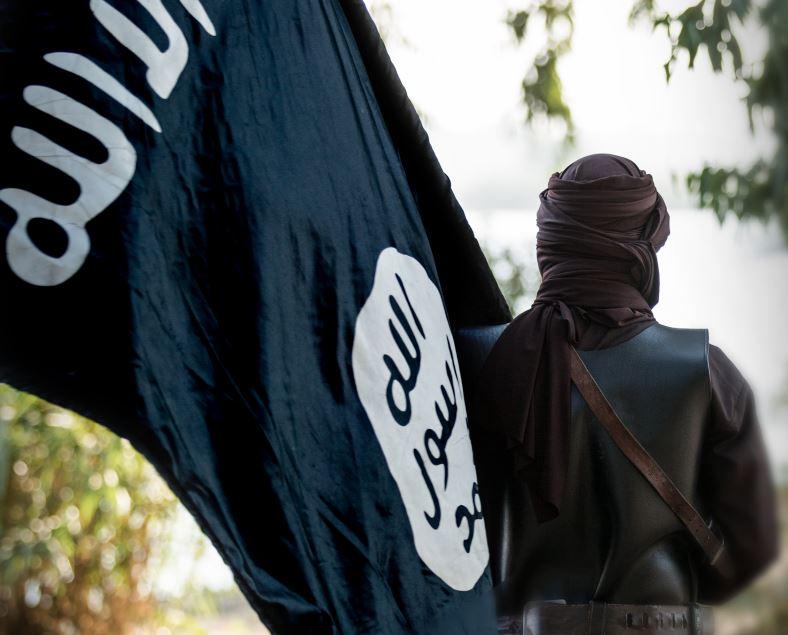Boy, 15, cleared of preparing for Isis-inspired terror attack during lockdown
Court heard that Isis ideology ‘filled a big gap in his life and made him feel special’

A 15-year-old boy has been cleared of planning Isis-inspired terror attacks after being radicalised in a matter of months.
The teenager, who cannot be named because of his age, experimented with “bottle bombs” in his bedroom during the coronavirus lockdown earlier this year.
He also recorded a series of videos where he said he would “carry out jihad” and appeared to incite others to launch their own attacks.
A jury cleared the boy of a charge of preparing acts of terrorism on Friday.
Leicester Crown Court heard that he rapidly developed “extreme views” associated with Isis at the start of this year, when he was 14.
The trial came after senior police officers raised concern that lockdown could make people more vulnerable to online radicalisation.
Prosecutor Anne Whyte QC said the boy had researched how to make different kinds of potentially deadly devices and had been experimenting with the idea of using shrapnel.
“This is an unusual case and it concerns the activities of a young person who, we will be suggesting, felt isolated and angry about his personal circumstances,” she added.
“In summary, it is said that, even though he was young, he had developed extremist views, radical views, associated with the terrorist organisation, Islamic State. This probably happened in early 2020.”
When questioned during his trial, the boy said he did not mean what he said in his videos, and that he had learned jihadi terminology from the dark comedy film Four Lions.
He admitted learning to make “bottle bombs” from a YouTube video, but denied planning to kill anyone or be martyred while “carrying out jihad”.
Asked by a defence lawyer about the reasons for his actions, he replied: “I don’t really know,” adding that he was upset by watching the “nasty” videos he had made.
The court heard that the boy’s family had been involved with social services amid concerns over child neglect, and that he had previously been placed in foster care.
He was arrested in June after social workers contacted police with concerns.
The boy had been carrying out experiments in his bedroom in Eastleigh, Hampshire.
Officers who searched his home found components and weapons inside a wardrobe fitted with an alarm system.
The teenager possessed diagrams relating to improvised explosive devices, switches and detonators and made basic drawings of a “dead man’s switch”, which enables bombers to detonate devices after being shot by police or incapacitated.
He told a social worker he had converted to Islam in May, but the court heard his online activity suggested this occurred several months before.
The boy created a note on his iPhone in February, which was later deleted, calling for Muslims to follow Sharia law and calling western culture a “cancerous tumour”.
The note said Isis would “rise again stronger” after its territorial defeat in Syria and Iraq, and “rape” the countries involved in fighting the terrorist group.
It called women “tools, an object to be used as a sex slave” and lashed out at homosexuality, calling for the “extinction of the western race”.
Other notes referred to the former Isis leader, Abu Bakr al-Baghdadi, and the court heard the boy had searched online for official Isis propaganda outlets.
He also searched for Isis “nasheeds” – Arabic songs used for propaganda purposes – as well as for beheading videos, and news articles on Isis attacks.
The teenager had made video clips on Isis-related ideology and clips designed as part of a series containing instructions on how to make “bottle bombs”.
Footage recorded in April showed him telling the camera: “Isis fighters are spread across the nation. Without jihad, there is no Islam. There is no Islam without jihad.”
Later the same day, he recorded a video showing him whispering “I am a martyr”, and others included Isis nasheeds and the group’s flag.
Some videos contained instructions on how to make home-made bombs, and encouraged people to “express your love for Allah by becoming a martyr”.
Prosecutors said the teenager felt “angry and abandoned” and that his attraction to Isis “was possibly connected with these feelings of rejection”.
Ms Whyte said Isis ideology “filled a big gap in his life and made him feel special in a way that he could not feel within his family and social structures”.
“There is no evidence that any one individual was responsible for pointing him towards radical Islam and you may think, after viewing all the evidence in the case, that much of his radical views came from his own activity online, accessing extremist material and absorbing its basic message,” she told the court.
“He had plainly absorbed this intolerant and offensive type of message from somewhere but it is quite possible that we will never know from precisely where.”



